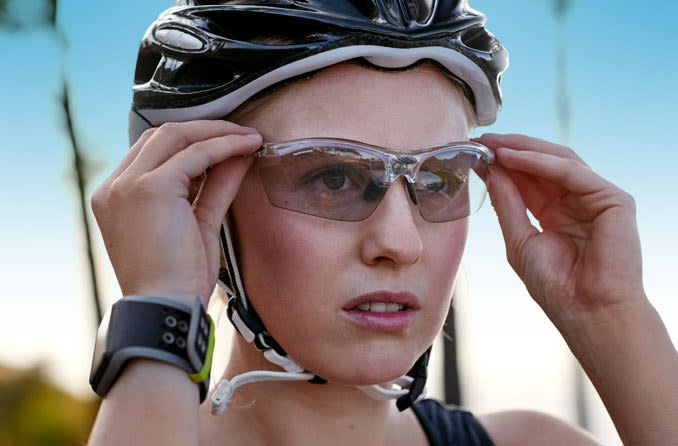
Should i get prescription goggles or contact lenses for sports?
Share
It's not always simple to be an athlete who requires prescription medication. You have two alternatives for getting your eyesight to work with your favorite sport: prescription sports goggles or contact lenses. We're here to explain why you should choose one over the other.
SPORTS GOGGLES ON PRESCRIPTION
For us, prescription sports goggles are the best option.
They safeguard your regular glasses, which should not be worn during high-speed activities. Goggles that are ASTM (sports) certified are more impact-resistant and flexible than normal glasses, and they will protect your eyes.
Customization is another advantage of sports goggles.
Our lens materials, including clear lenses, offer 100 percent UV protection, which is ideal for daytime outdoor activities. Alternatively, if you participate in a sport that allows for lens tinting, you can have the proper contrast-enhancing lens and other features.
CONTACT LENSES
People who don't like the look of sports goggles or who don't like having anything on their face should consider contact lenses.
However, the disadvantages outweigh the advantages for us.
If you wear contacts and are debating whether or not to acquire sports goggles, consider the following:
- If the weight of goggles worries you, we provide a variety of lightweight frames that are hard to distinguish apart. For games like football, several of our sports goggles are also helmet-compatible.
- If you don't like the look, take another look. In recent years, sports goggles manufacturers have created more fashion-forward designs, and they're growing better all the time. The more individuals who wear sports goggles on the field, the more are produced, and the more probable you are to discover something that suits your tastes.
- Many of our favorite models (such as the Wiley X Youth Force range) include a strap or retainer to keep goggles in place.
- We also recommend digital lenses to improve peripheral vision. Digital lenses are designed to minimize distortion from all angles, making them an excellent choice for sports goggles.
Many people are unable to wear contacts due to health concerns, pre-existing eye conditions, or contact lens incompatibility with multifocal prescriptions. Contact lenses can cause dry eyes, but sports goggles can contain vents and an anti-fog coating to keep your eyes moist without fogging.
WHAT IF I DON'T LIKE ONE OR THE OTHER?
This is a real fear, and many athletes share it. Technically, you have two additional choices: either don't wear glasses at all, or wear your regular glasses. Many people opt for one of these solutions, but neither is a suitable long-term strategy. Your ability to play is hampered if you can't see clearly. Your ability to play is hampered if you can't see clearly. Even if you believe you can see the ball clearly, your reaction time will be slower, and you won't be able to see where the opposing team's eyes are focused.
If you wear your regular glasses, though, there's a significant possibility they'll break. Team sports can be hard, and even if you take precautions, you still risk shattering your glasses. We recommend ASTM-certified eyewear for high-speed sports in particular.
